Closely Watched Trains (1966)
Dir. Jirí Menzel
Writ. Bohumil Hrabal (also novel), Jirí Menzel
w/ Václav Neckár, Josef Somr
Writ. Bohumil Hrabal (also novel), Jirí Menzel
w/ Václav Neckár, Josef Somr
Stepping into the niche his ancestors have carved for him, Milos begins his apprenticeship as a dispatcher at the local train depot in Nazi-controlled Czechoslovokia. His girl, a train conductor, loves him, and all he has to do is "stand on the platform with a signal disc and avoid any hard work, while others have to drudge and toil." Life is good. But when it's time to make love, Milos suffers anxiety, a misunderstanding of his manhood that leads him first to a suicide attempt and then to a more alluring solution, an older woman.
Milos's quiet acknowledgment of the goings-on around him make for thoughtful viewing. Like a well-made cup of tea, Closely Watched Trains progresses, gently provocative and brimming with delightful moments; insightful, humorous, and brazen. An inspector arrives at the station to show the stomping power of the Reich, reminding the workers that they all have to like each other in order to win, and departing in a car on the tracks, running in reverse.
Later, when Milos's philandering co-worker gets nabbed for tatooing a young girl with official rubber stamps, the Inspector returns to declare the dispatcher's guilt of abusing the German national language as engraved on one of the stamps and displayed on the girl's right buttock. It's wonderful irreverence, the sort of material to be expected from a man some have called the Woody Allen of Czechoslovokian cinema, for both physical and humorous resemblances.
Since 1966, of course, the country has split into the Czech Republic and Slovokia, and a similar hint of division surfaces within the forty-year-old film. The town, station, far away cities and countries exist as separate entities, mere matters of geography. The imposition of the Reich holds little sway over Menzel's individual countrymen. Distance and culture clash raise too high a barrier to make much of an impression beyond the idea that the Germans are pigs who don't know how to treat cattle, let alone people. The soldiers that pass through on foot get afforded the same courtesies as the closely watched trains that arrive almost without origination on one side of the tracks and depart to the unknown on the other.
Menzel's style, influenced by the Nouvelle Vague, retains its integrity by not indulging in the experimental or overdoing technique. True to form, the images flow with the logic of a mountain stream, but with an undercurrent of dark humor contextualized by an unending sensitivity to humanity's weaknesses and shortcomings as well as its surprising strengths. Each take supports the previous and jumps into the next, securing the masterpiece as a lasting monument to its director and its country.
A bold and kind treatment of the enduring reality of the human spirit, it won the Grand Prix at the Mannheim Film Festival and The Best Foreign Language Film Award at the 1967 Academy Awards.
Milos's quiet acknowledgment of the goings-on around him make for thoughtful viewing. Like a well-made cup of tea, Closely Watched Trains progresses, gently provocative and brimming with delightful moments; insightful, humorous, and brazen. An inspector arrives at the station to show the stomping power of the Reich, reminding the workers that they all have to like each other in order to win, and departing in a car on the tracks, running in reverse.
Later, when Milos's philandering co-worker gets nabbed for tatooing a young girl with official rubber stamps, the Inspector returns to declare the dispatcher's guilt of abusing the German national language as engraved on one of the stamps and displayed on the girl's right buttock. It's wonderful irreverence, the sort of material to be expected from a man some have called the Woody Allen of Czechoslovokian cinema, for both physical and humorous resemblances.
Since 1966, of course, the country has split into the Czech Republic and Slovokia, and a similar hint of division surfaces within the forty-year-old film. The town, station, far away cities and countries exist as separate entities, mere matters of geography. The imposition of the Reich holds little sway over Menzel's individual countrymen. Distance and culture clash raise too high a barrier to make much of an impression beyond the idea that the Germans are pigs who don't know how to treat cattle, let alone people. The soldiers that pass through on foot get afforded the same courtesies as the closely watched trains that arrive almost without origination on one side of the tracks and depart to the unknown on the other.
Menzel's style, influenced by the Nouvelle Vague, retains its integrity by not indulging in the experimental or overdoing technique. True to form, the images flow with the logic of a mountain stream, but with an undercurrent of dark humor contextualized by an unending sensitivity to humanity's weaknesses and shortcomings as well as its surprising strengths. Each take supports the previous and jumps into the next, securing the masterpiece as a lasting monument to its director and its country.
A bold and kind treatment of the enduring reality of the human spirit, it won the Grand Prix at the Mannheim Film Festival and The Best Foreign Language Film Award at the 1967 Academy Awards.

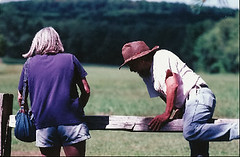
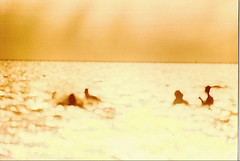
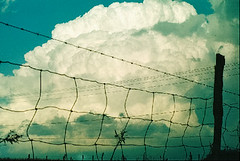
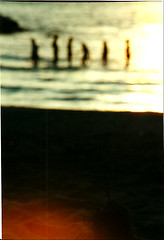
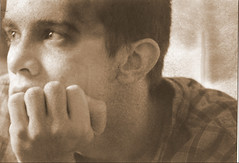
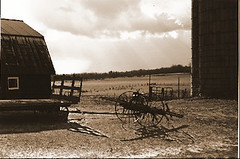
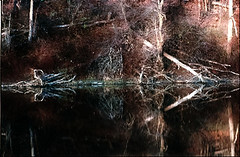






2 Comments:
oddly, i just watched this yesterday
i'm hoping life's more like a Gustav Klimt painting in the future than an Edward Munch
Post a Comment
<< Home